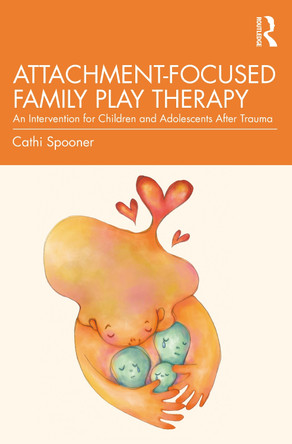Description
In the therapy room, this has meant working with individuals one-on-one, with the therapist assuming the role of the attachment figure in order to provide a secure base for treating clients' problems that arose from troubled interpersonal relationships in childhood.
Here, Daniel A. Hughes, an eminent clinician and attachment specialist, is the first to expand this traditional model, applying attachment theory to a family therapy setting. Drawing on more than 20 years of clinical experience, Hughes presents his comprehensive, effective, and accessible treatment model for working with all members of a family-not simply the individual in question-to recognize, resolve, and heal personal and family problems using principles from theories of attachment and intersubjectivity.
Beginning with an overview of attachment and intersubjectivity-the twin theories from which he forms his treatment plan-Hughes carefully outlines, chapter by chapter, the core principles and strategies of his family-based approach. He elaborates on the need to develop and maintain PACE (playfulness, acceptance, curiosity, and empathy)-the central therapeutic stance of attachment-focused family therapy-and supplies tips and sample dialogues for implementing this position. The importance of fostering affective/reflective (a/r) dialogue is covered in detail, as well as helping families to manage shame, understand and embrace the break-and-repair cycle of their interactions, and explore and resolve childhood trauma. Also discussed are the more procedural issues of how to incorporate parents into therapeutic conversations, when and how to question them on their own attachment histories, and how to "be" with children.
Grounded in the fundamental principle of parents facilitating the healthy emotional development of their children, Attachment-Focused Family Therapy is the first book of its kind to offer therapists a complete manual for using attachment therapy with families. Extensive case studies, vignettes, and sample dialogues throughout clearly demonstrate how Hughes's model plays out in the therapy room. By showing therapists how to create a bond of psychological safety and intersubjective discovery with parents and caregivers, Hughes reveals how they, in turn, can bring about similar experiences of safety and discovery for their children.
About the Author
Daniel Hughes, PhD, is a clinical psychologist and author who developed Dyadic Developmental Psychotherapy. He lives in Annville, Pennsylvania.
Reviews
"[A]n excellent resource for any therapist interested in applying attachment theory to work with children and parents in a family therapy context." -- ASAP Newsletter
"[A]n engrossing and helpful explication of the nuts and bolts of what goes right and wrong with relationships from the earliest days of our childhoods." -- New Therapist
Book Information
ISBN 9780393705263
Author Daniel A. Hughes
Format Hardback
Page Count 296
Imprint WW Norton & Co
Publisher WW Norton & Co
Weight(grams) 552g
Dimensions(mm) 244mm * 163mm * 25mm








